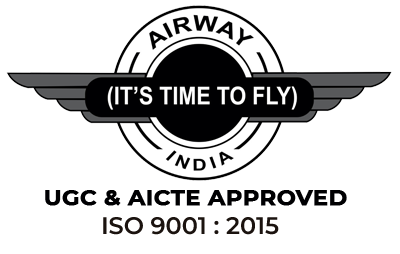
The aviation industry is rapidly growing, making a demand for skilled experts to manage airline and airplane terminal operations. An MBA in Aviation Management could be a specialized program that gives students with ability in airline operations, air terminal administration, coordination, and aviation safety. This program is perfect for those aspiring to work in aviation MBA, MBA in airport management, MBA in aircraft and airplane terminal administration, or MBA in aircraft administration.
With carriers growing universally and passenger numbers rising, aviation management has become a lucrative career choice. This blog will cover the qualification criteria, syllabus, and admission process for an MBA Management, along with career prospects.
What is an MBA in Aviation Management?
An MBA in Aviation Management may be a two-year postgraduate degree that coordinating trade administration with flying studies. It plans students for leadership roles in airplane terminals, carriers, cargo companies, and flying consultancy firms by focusing on vital decision-making, aviation law, financial administration, and operational efficiency.
This program incorporates both theoretical concepts and practical training to guarantee students are industry-ready. Graduates can secure managerial parts in airplane terminal operations, airline business strategy, coordination, and aviation safety.
Eligibility Criteria for MBA in Aviation Management
To select in an MBA in Aviation Management, candidates must have a bachelor’s degree from a recognized college with at least 50% marks. A few institutions may require a higher percentage. Candidates need to clear entrance exams like CAT, Mat, XAT, GMAT, or university-specific tests.
Although work involvement isn’t mandatory, a few colleges favor candidates with one or two years of involvement in aviation or management. International applicants may need to submit IELTS or TOEFL scores for English proficiency.
Syllabus for MBA in Aviation Management
The syllabus covers both core business management subjects and aviation-specific topics.
In the first year, students learn standards of administration, managerial financial matters, business communication, accounting, and organizational behavior along with aviation business fundamentals and airport operations.
The second year focuses on carrier and airplane terminal administration, aviation law, financial management, aircraft promoting, and aviation safety. Students also study air cargo operations, coordination, and aviation security.
Internships and projects shape a basic portion of the educational programs, giving hands-on encounter in real-world aviation scenarios. A few colleges offer electives like airline revenue management, airport framework planning, and airplane support administration for specialization.
Admission Process for MBA in Aviation Management
The admission process starts with checking qualification and selecting the preferred colleges. Candidates must show up for entrance exams such as CAT, Mat, XAT, GMAT, or university-specific tests. A few private teach offer coordinate confirmation based on undergraduate marks, but most legitimate colleges require competitive scores.
After clearing the entrance exam, candidates must yield their applications in conjunction with scholarly records, personality verification, and entrance test scores. Shortlisted candidates experience a group discussion and individual interview, evaluating their communication skills, problem-solving capacity, and industry knowledge.
Once chosen, candidates total admission formalities, including fee installment and document confirmation, to secure their enrollment.
Career Opportunities after MBA in Aviation Management
An MBA in carrier and airport management offers differing career openings within the aviation industry. Graduates can work as air terminal supervisors, managing air terminal operations, security, and traveler administrations. They can too become aircraft operations supervisors, guaranteeing smooth airline schedules and regulatory compliance.
Flying safety managers play a significant part in keeping up security guidelines, whereas coordination experts oversee air cargo operations and supply chain forms. Numerous graduates also find roles in business development, airline promoting, and aviation consultancy.
With the rising demand for air travel, experts in aviation management can anticipate competitive pay rates and worldwide career openings in private aircrafts, airplane terminal specialists, cargo companies, and government flying organizations.
Conclusion
An MBA in Aviation Management could be a smart choice for those looking to construct a career within the aviation industry. This program provides students with managerial skills and specialized aviation knowledge, planning them for administration parts.
With airport and carrier management offering profitable career prospects, this degree opens doors to a energetic worldwide industry. In the event that you’re enthusiastic approximately flying and try to a high-flying career, an MBA in Aviation Management is the perfect choice.
